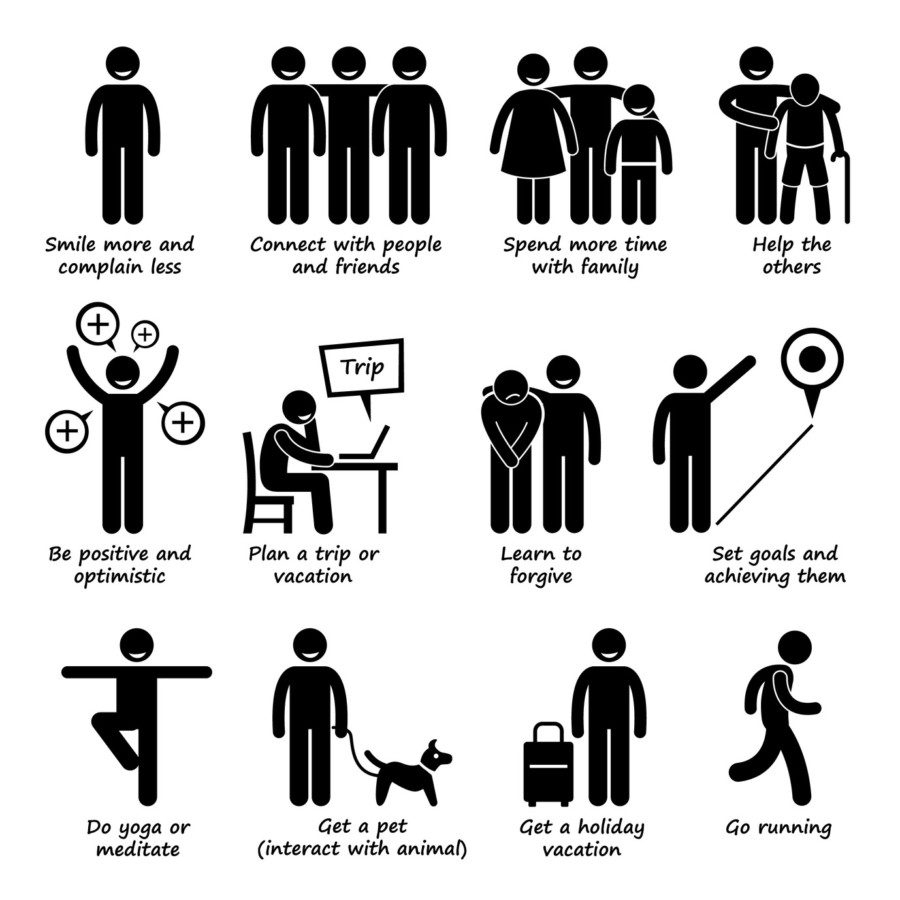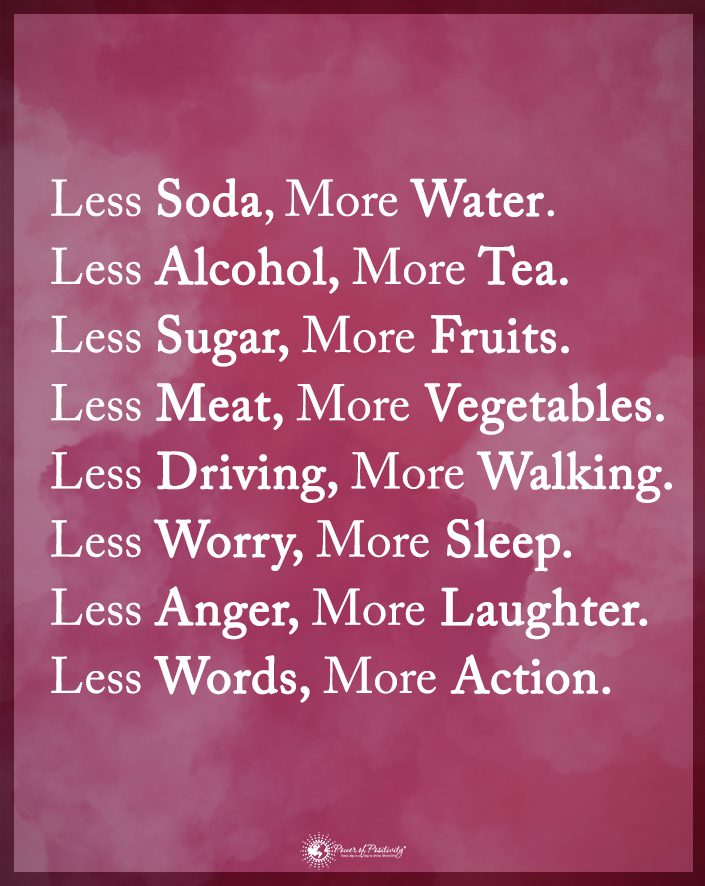Many of us feel unhappy and disconnected daily. Sometimes even when we are doing our best, we get discouraged, wondering why we are not a happier person. The truth is, we often overlook some of the easiest ways to turn our frown upside down – our everyday habits. What we do consistently can make or break our happiness, no matter how good of a person we are.
Here are quick and straightforward tips (we often forget) that can add more happiness to our daily life.
12 Steps to Being a Happier Person:
1. Smile more and complain less.
Your smile is infectious! When people see your face light up, they’ll respond to you in kind. You’ll feel happier from this one small interaction. Plus, you’ll feel less impacted by daily stress.
2. Connect with people and friends.
Like most people, you likely have a support network of close friends. This circle serves as your boost when needed. Surround yourself with positive feedback from these connections. Some of us only have a few very close friends, and that’s okay, too! It’s all about the quality of the friendship and not the quantity.
3. Spend more time with a supportive family.
Do you have supportive family members? Rely on them to bolster your spirit on days that you need it!
One catch. You can’t choose your family members. To feel happier, remain closest to those who carry light and positivity instead of doom and gloom.
4. Help others in need.
You will love the feeling you get when you help others. Whether you’re a volunteer at a local soup kitchen or donating gently used clothing to a family in need, you’ll count your blessings. The act of volunteering makes you genuinely appreciate all the benefits in your life.
5. Be more optimistic about life and the way things will turn out.
Have an optimistic attitude. Assume that you’ll find a positive outcome at the end of each goal you set for yourself. Otherwise, accepting any less sets you up for a self-fulfilling prophecy of failure.
6. Plan a trip or a vacation.
Spend time in travel to renew and recharge your batteries. Getting a complete change of scenery will feel like hitting a “reset” button on your attitude. And, you’ll likely find fresh inspiration along the way.
7. Learn to forgive.
Carrying the albatross of anger and bitterness around your neck weighs you down. Let go of past hurts. But how? By forgiving. Even when the person truly doesn’t deserve the kindness, it will set you free of those bad feelings.
8. Set new goals and achieve them.
Setting goals helps us to grow. They give us something to work for–and we know that we will eventually benefit when we reach the outcome. You will feel happier knowing that you accomplished something important to you.
Goals can be career-related or personal. From taking the steps to a promotion at work to acting on a doctor’s advice to lower your blood pressure, you can do it!
Break the long-term goal into shorter steps or short-term goals. Write them down and check off your list as you accomplish each more concise goal. In the end, your diligence will pay you tenfold.
9. Do yoga or meditation.
Yoga and meditation proved through the centuries to offer both physical and mental benefits. A few of the outcomes of practicing these ancient arts are the following:
- Stress relief
- Reduction in inflammation in the joints
- Improved flexibility
- Better mental clarity
- Enhanced sleep quality
- Correction of posture
In short, you will feel happier because you’ll feel better!
10. Get a pet–and interact with the pet.
Pets soothe us after a long day at work and comfort us on our worst days. They love unconditionally and never judge us. Their devotion shows you the meaning of true love and makes you feel happier.
11. Get some time off of work.
Time off of work is essential to mental well-being. Not only do you need to free yourself of the physical act of performing your job each day, but you also need to clear your mind of your responsibility to your company mentally. Pressures like deadlines, negative co-workers, and things you can’t control wear on your nerves day-in and day-out.
The time off will help you fall back in love with your job again–or allow you to evaluate if you need to find a new career.
12. Do physical activities like walking or running.
Cardiovascular activities like running, walking, skiing, or even playing basketball are vital. This vigorous exercise releases a feel-good hormone that makes you feel happier, naturally. Ever hear the term runner’s high? It’s the result of that chemical reaction.
Additionally, you’ll improve your heart health and maybe even shed a few unwanted pounds.










